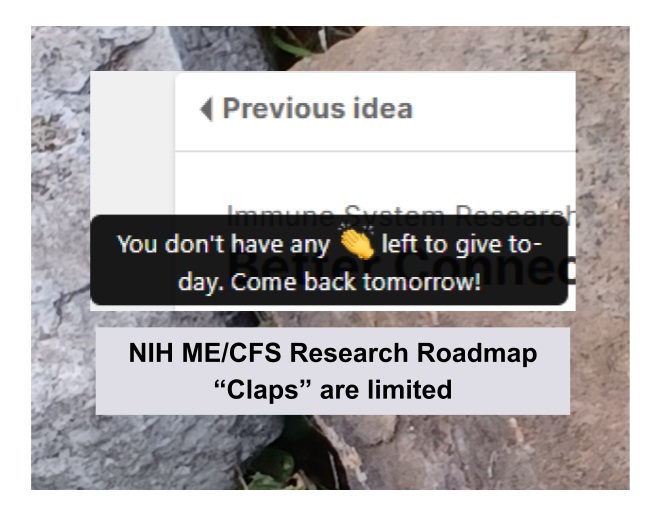boolybooly
Senior Member (Voting Rights)
OK, I managed to hold it together long enough to log in and make a suggestion. Not a good day for me to be honest. Hope it is helpful.
https://ninds.ideascalegov.com/c/idea/32743
https://ninds.ideascalegov.com/c/idea/32743
Idea description said:Idea description
Currently it seems possible that indistinct experimental result signals and poor reproducibility, even contradictory results, are affected by the broadly inclusive criteria used for cohort selection for many studies of ME/CFS patients.
Establishing the practice of developing experimental subtype definitions beyond established ME/CFS criteria, would allow more closely defined cohorts with distinct laboratory detected traits, which would reduce heterogeneity and improve signal to noise in results and reproduction attempts.
This is probably easiest to do with chronic infection research. For example, the detectable presence of a particular chronic infection could be used to define an experimental subtype of ME/CFS patient which could then be used along with ME/CFS criteria to select a cohort so that all members of the cohort test positive for that infection. This would increase the likelihood they have the same kind of condition.
The price you pay for this is a reduction in general applicability of any experimental signal. It may be specific to the subtype. But at least then progress can be made and further comparisons between different ME/CFS subtypes may prove informative.
Do you agree with the research priorities as outlined for research on the involvement of chronic infection in ME/CFS?
Yes
Do you have specific comments/feedback on any of the research priorities?
No but please think about increasing cohort homogeneity and treat it as a priority.
Do you have additional research priorities for research on the involvement of chronic infection in ME/CFS?
Request that researchers please consider and investigate periodicity in infection reactivation.
i.e. Consider that viruses may recur and be suppressed by immune responses in cycles due to the interaction of the molecular elements of the immune system and pathogens.
This may have implications for improving cohort homogeneity when investigating ME/CFS with chronic infection as patients in different phases of reactivation cycles may show different molecular activity. Therefore detecting phase to time sampling and accounting for it in data interpretation might prove helpful in improving signal to noise in applicable cohorts.


